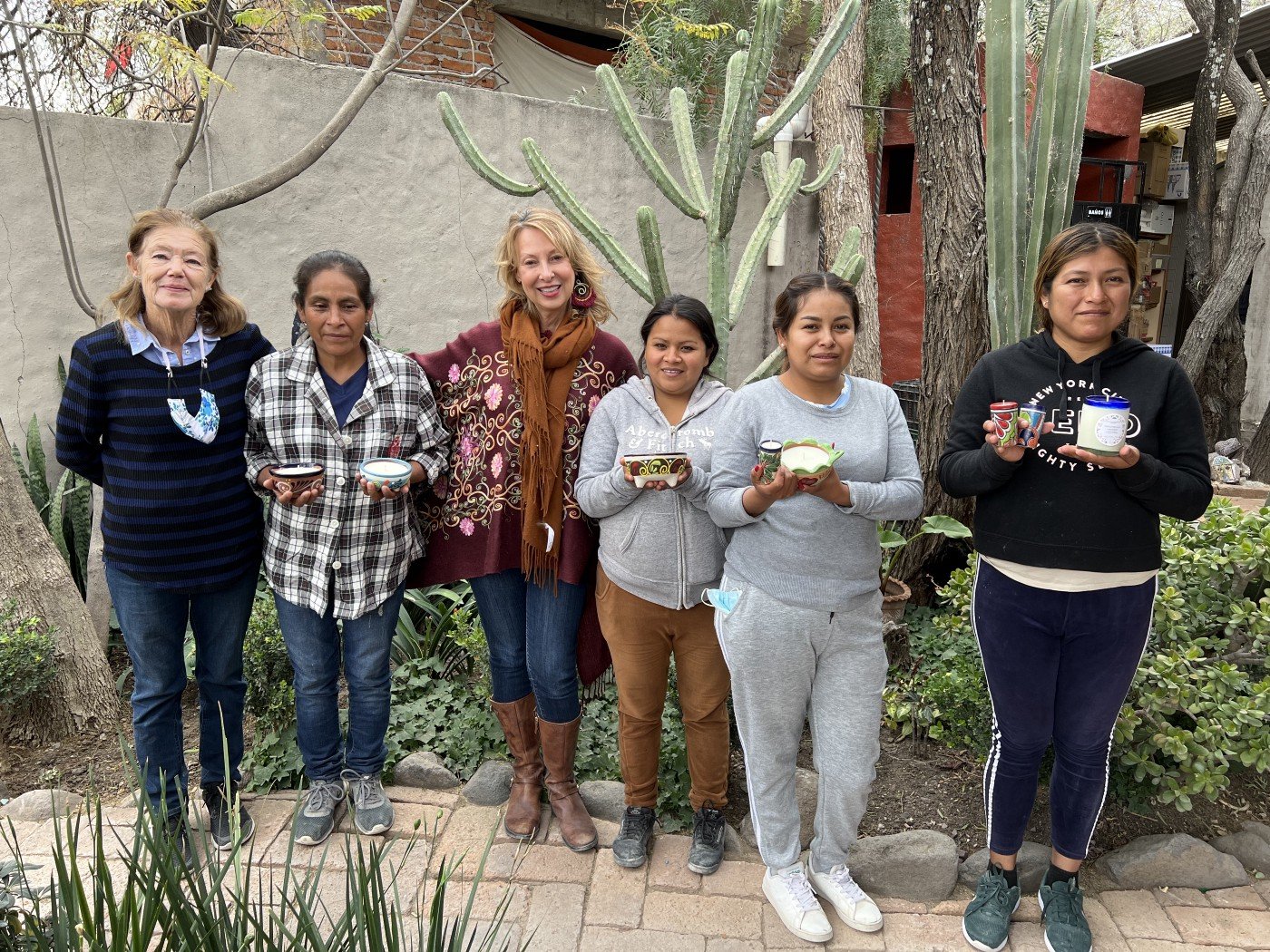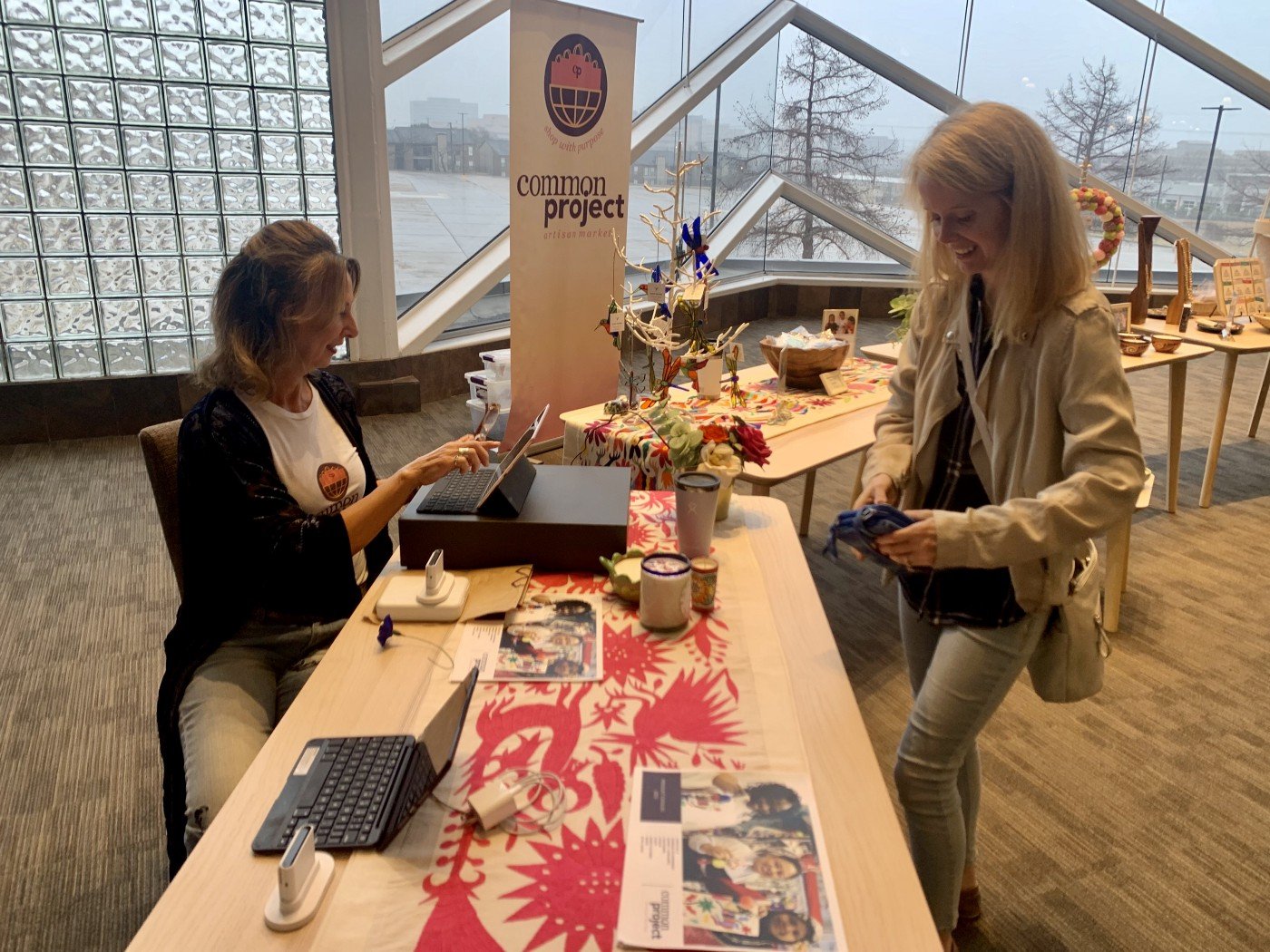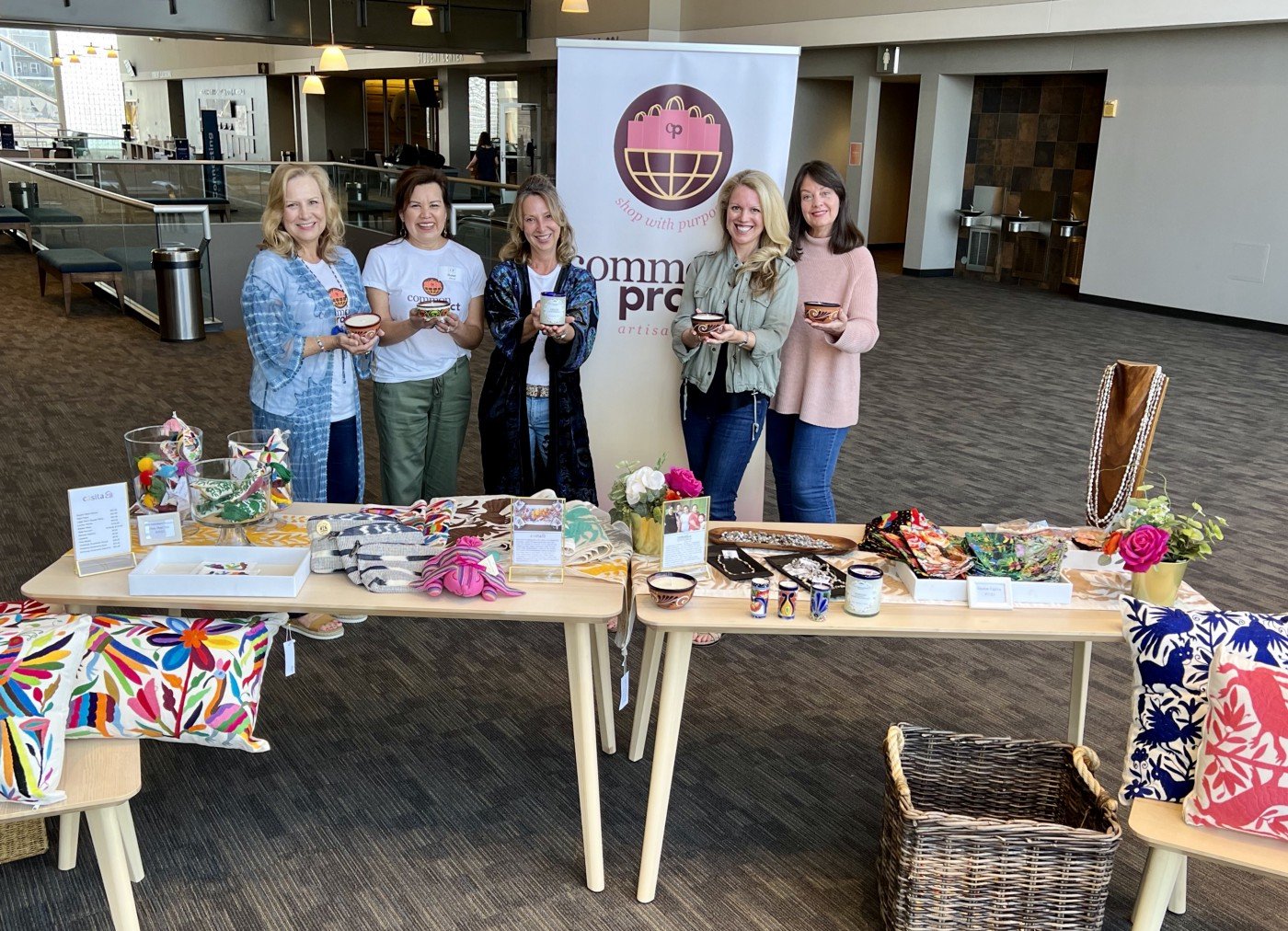The Candles That Connect Us
Capturing stories of indigenous families of San Miguel Viejo with Elsmarie Norby, founder of Ojalá Niños
There is comfort in rituals. One of my favorites is the Christmas Eve candlelight service, during which, for about an hour, it feels like peace on earth might be achievable. Such rituals span the world’s great faith traditions and indigenous ones alike, inviting members to bond in communal virtue, even if dwelling there for any length of time proves challenging. In Christendom, the warm glow of our beloved candlelight service can dissipate as early as December 26. Yet, so great is the hope this holiday holds for humanity that we invariably spend another year anticipating it all over again, however fleeting the joy of the season may be.
March 8 marks another annual celebration, with very different rituals, but the good intentions behind them are similarly challenging to sustain. To the uninitiated, International Women’s Day might sound like a Hallmark holiday, but its serious origins date back to 1908 when 15,000 women marched through New York City demanding shorter working hours, better pay and the right to vote. In 1910, a woman named Clara Zetkin set out to establish a global event to champion these aims at an International Conference of Working Women in Copenhagen, where one hundred women convening from 17 countries agreed on her suggestion unanimously. The first celebration of International Women’s Day was held in 1911 in Austria, Denmark, Germany and Switzerland — and this year we’re celebrating its 111th anniversary.
How much progress have we made toward Clara’s vision for shorter working hours, better pay and the right to vote? In America and other developed countries, we’ve made considerable strides — so much so that all of this hoopla about women’s rights can border on excessive. But looking beyond the lives of educated professional women, it becomes clear that women are still a cause worth championing. For instance, women in Bangladesh are experiencing the same horrors that American women did one hundred years ago, as I wrote back in 2012. A decade later, progress remains slow.
Today, modern slavery persists in Bangladesh and other corners of the world across industries and through human trafficking. While most of the world’s women work in less gruesome circumstances, collectively women still experience a sizable gender gap in pay and suffer staggering rates of abuse. According to a 2021 study by UN Women based on 13 countries, almost one in two women (45%) reported that they or a woman they know experienced a form of violence during the Covid-19 pandemic. This includes non-physical abuse, with verbal abuse and the denial of basic resources being the most commonly reported.
This International Women’s Day, for reasons that surprise even me, I see hope for significance beyond the symbolic. Like rituals, commemorative events can be a time to remember those who came before us, but this day is galvanizing people all over the world right now to stand up and take action on behalf of women. For my part, I’m celebrating this holiday with a candlelight service of another sort. Unlike the wax sticks we hold while singing hymns in church, these candles that connect us were poured by hand into hand-painted ceramic bowls by women living in a country neighboring mine, yet whose circumstances are vastly different.
Debora Annino teaching candle-making to mothers of the Women’s Cooperative in San Miguel Viejo
I had the privilege of spending several days with the women of San Miguel Viejo last month. I visited their indigenous community in Central Mexico on a “voluntrip” sponsored by the Little Things Matter Foundation, whose founder Debora Annino is dedicated to improving lives through small-scale, project-based investments. My purpose for being there was to help write and edit a heritage book chronicling the work of longtime advocate Elsmarie Norby so that her mission to empower others through arts and literacy may live on after she retires.
Elsmarie greeting her longtime neighbor and friend, Doña Natalia, who turns 85 this year
Among the initiatives the Little Things Matter Foundation sponsors, in collaboration with Elsa’s organization Ojalá Niños, is the Women’s Cooperative, which teaches mothers how to sew and make candles to sell for extra income. I took part in their “candlelight service” as an observer in Mexico, and as a participant when I returned home to Dallas.
Those left behind in society’s constant push toward digital transformation include women such as those I met in this village, and they exist in villages all over the world. While they can learn to make artisanal crafts with the help of non-profits such as the Little Things Matter Foundation, they still encounter problems selling them without the means for transportation or childcare. That’s where organizers like Debora come in, donating the supplies, and managing the production, transport, and marketing required to convert the candles and other goods into cash, which she does through her social enterprise, Common Project.
Turning candles into cash with the help of a conscious shopper
As a board member of the Little Things Matter Foundation, I was pleased to volunteer for the organization’s marketplace, Common Project, at a conference held at Debora’s church over the weekend. There, I helped sell the candles to attendees who were eager to put their faith into action by purchasing fair-trade goods. Being able to tell them personal stories of the women who made their candles was a rare privilege in today’s economic system dominated by complex supply chains, with no personal connection to those who make the products we buy.
Rhonda Blessing, Rose Alsup, Debora Annino, Anna Clark and Kim Rice selling fair-trade artisanal goods to attendees at IF:Gathering, March 2022
The collaboration of Debora Annino and Elsmarie Norby is a testament to the tremendous work being done by women leaders all over the world. Their compassionate and consistent service is changing lives and lifting up the women of San Miguel Viejo and countless others. On this day I salute them all, including the women who helped close the loop by shopping with Common Project. Selling the candles that connect us may have been a symbolic act, but it was one with tangible rewards for a few of my global neighbors, and ojalá, many more to come.
Reflecting on my time with the people of San Miguel Viejo and the advocates who work to improve their wellbeing, I can vouch that these families have few material comforts by first-world standards, but they have a rich community life. It’s common for three or more generations to live under one roof, where elders are included and valued for their wisdom. Fewer expectations and a slower pace mean less stress, but I won’t sugarcoat it. Living in poverty also means that families are unable to pay for enrichment classes to learn skills that can lead to fulfilling work and a better future. To help, visit www.littlethingsmatter.net to donate or purchase fair-trade goods. Even the smallest of donations and purchases can add up to make a big difference.
As we are seeing in war-torn Ukraine and the surrounding communities welcoming its refugees, every little thing we do for others matters when it comes to supporting the global village.







